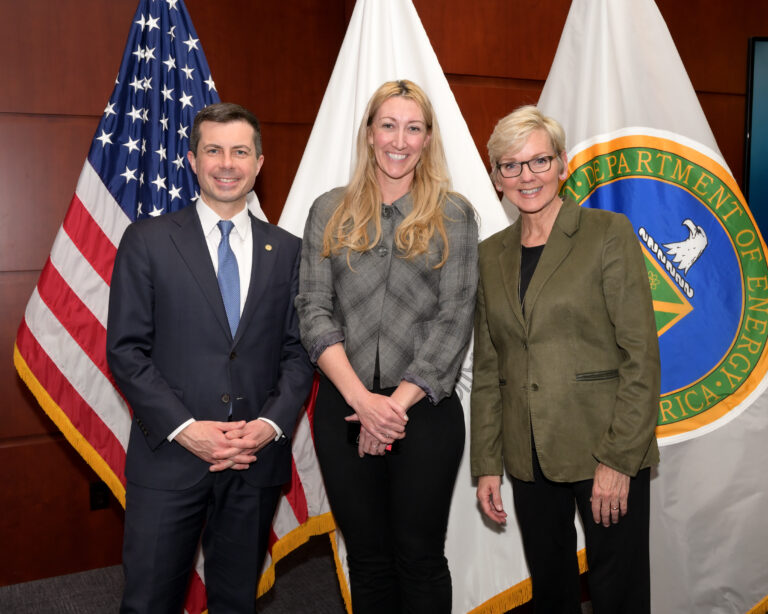
The Electrification Coalition (EC) is ready to help you tackle your application for the Charging and Fueling Infrastructure (CFI) Discretionary Grant Program. Funding is allocated between two buckets of funding – a Community Program and a Corridor Program. The CFI grant will build a better America by deploying tens of thousands of EV charging stations throughout the U.S. in urban and rural communities, particularly those neighborhoods most vulnerable to climate change and air pollutants.
Each application will be evaluated based on the five metrics provided by the FHWA: Safety; Climate Change, Resilience and Sustainability; Equity, Community Engagement, and Justice40; Workforce Development, Job Quality, and Wealth Creation; and CFI Program Vision.
In this review, we have gone through and linked various tools to address these specific metrics. These tools will help you analyze and compare locations for chargers, assess cost and GHG emission savings, and ensure equal access to all planned EV chargers. The EC wants to ensure that cities are planning out their charging stations efficiently, enhancing and serving their communities.
Applications for the first round of funding were due June 13, 2023, Applications for the second round of funding have not yet opened.
The GEM tool is a comprehensive online mapping tool that identifies areas that are suitable for low- or no-carbon power generation and other energy-related projects. This tool can help ensure that the intended project area is EVSE–ready and has the grid capacity to support charging, preventing construction and power issues. Additionally, utilization of traffic mapping and data can help applicants plan installation and construction so as not to pose risks to pedestrians or maintenance staff, and to ensure utilization of the U.S. DOT’s National Roadway Safety Strategy’s Safe Systems Approach.
The AFLEET CFI tool is designed to estimate the well-to-wheel greenhouse gas emissions and vehicle operation air pollutant emissions for CFI applications, allowing comparison of the data against current conditions to show GHG emission reductions.
This map provides data across the whole country, highlighting areas exposed to transportation disadvantages. Since CFI emphasizes the need for charging in rural and underserved areas, knowing where and how these needs are not being met is vital to creating a nation-wide publicly accessible charging network.
In addition to further demonstrating locations of disadvantaged communities, this map also shows how those areas crossover with tribal lands, U.S territories, current and pending AFCs, and current public chargers to aide in planning and ensure adequate access to eV chargers across the country.
The utilization of these tools upholds the CFI program’s vision to strategically deploy publicly accessible electric vehicle charging and alternative fueling infrastructure along designated Alternative Fuel Corridors (AFCs), and in the places people live and work, particularly those neighborhoods most vulnerable to climate change and air pollutants.
